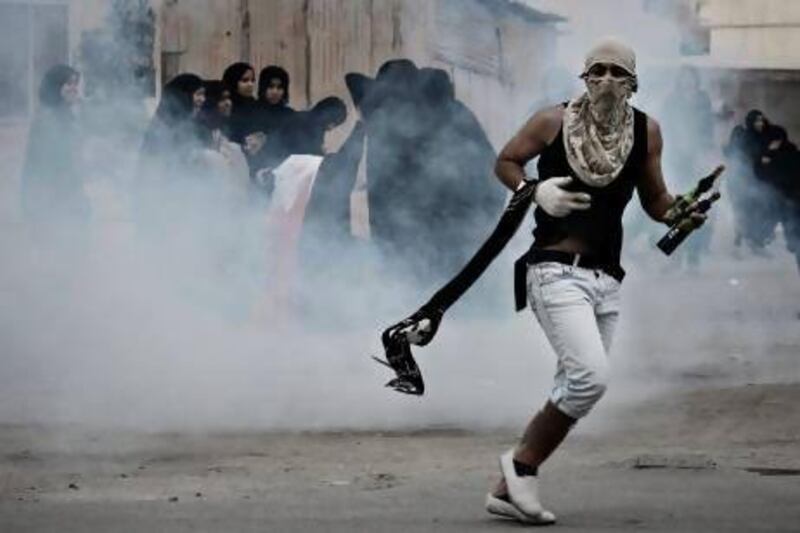A year ago, Egyptian human rights lawyer M Cherif Bassiouni presented a 500-page report condeming Bahrain's response to a wave of protests in the kingdom that spring.
Now, on the first anniversary of the Bahrain Independent Commission of Inquiry (BICI), Bahrain's government has issued a forceful defence of progress made towards reform.
Amid continuing tensions, a government spokesman said that the justice minister was working with numerous political groups to find "common ground".
"The government's commitment to implementing BICI goes to both the letter and in spirit," said Fahad Al Binali, a spokesperson for the Bahraini Information Affairs Authority.
The BICI report, which included recommendations for reforms of the security, judicial, and education sectors, has been viewed as a benchmark for the government's willingness to reform after Shiite-dominated protests rocked the country in February and March last year.
A follow-up report released yesterday argues that Bahrain "has taken all necessary legislative and administrative procedures" to implement 18 of the report's 26 recommendations completely. Numerous recommendations focused on government accountability, and in the months since the report was issued, Bahrain has established several new oversight agencies.
But critics have argued that the reforms have made little difference.
"One year later, the government has had ample time to act, but has, in general, only made superficial progress," argues a report by the Bahrain Centre for Human Rights (BCHR) also issued on the BICI anniversary.
"The current government, which is responsible for the violations, cannot be the same government responsible for implementing the report," said Matar Matar, from the largest Shiite opposition society, Al Wefaq.
Assessments by Amnesty International and the US-based Project on Middle East Democracy (Pomed) also allege that significantly fewer recommendations have been implemented.
In recent months, there have been clashes between protestors and security forces, and in October, the interior ministry announced it would implement a temporary ban on all gatherings.
The chief of public security, Maj-Gen Tariq Al Hassan, said his office was drafting new laws to govern public protests.
On November 5, two bomb blasts in central Manama killed two expatriate workers. This week, security forces arrested members of a group said to be planning to plant "fake bombs in several crowded areas throughout Bahrain".
Analysts argue that a political solution to the country's disputes may be vital to pre-empting further violence.
"The current tit-for-tat security situation is likely to become the new normal in Bahrain," said Justin Gengler, of the Social and Economic Survey Research Institute in Doha.
Both government and opposition forces have said in recent months that they are open to dialogue but both accuse the other side of failing to show a commitment to talks.





